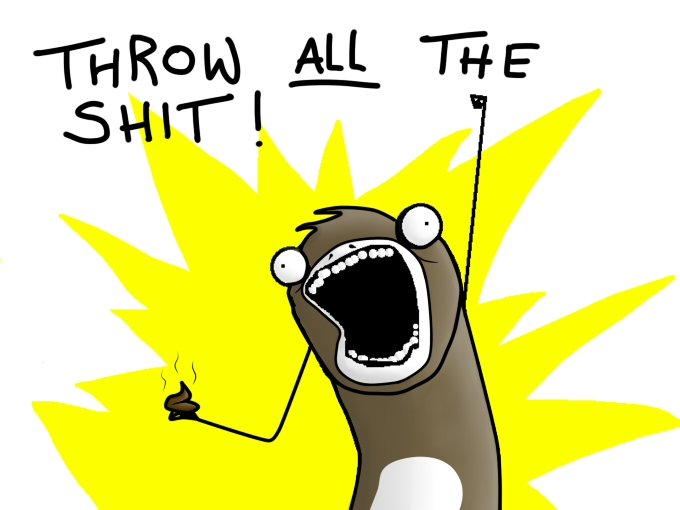I bet there are a lot of things out there in powerlifting that you don’t like. From gyms, through methods, beliefs, gurus, drug testing policy, feds and meet venues. It is really ok to reject something: I, myself, am somewhat of a traditionalist concerning rules, and a radical, concerning individual rights (aka drug testing: against it).
There might be lifts that you watch on youtube and just frown. It is also ok. It is ok to share your perception and dislike with friends and co-workers in private.

Sometimes you figure an organization is not taking the sport seriously because every single meet you attended (or got solid evidence about) was not really kosher: disks were uncalibrated, support was out of official dimensions, safety bars were lacking, unofficial people were at the platform, bench presses were touch and go, squats were high or whatever.
What do you do?
Easy answer: don’t lift there. Ignore the whole thing.
If someone you know lifts with them, shows a picture or a video lifting in such conditions, don’t condemn them publically. If solicited by the person, you may share your views in private.
If it is someone you truly dislike, more reason to simply ignore it: trashing the meet or bashing the athlete in an emotional context will only support bad practice in the sport and erode your credibility.
Different people lift for different reasons. Have you ever thought people who lift in not-so-kosher environments need whatever they get from that experience? Who are you to judge their emotional needs? So it’s not really a sport, a game, without rules. So they are fooling themselves. So what? Haven’t you ever fooled yourself before? You have, believe me.
If you love this sport and intend to devote your life to it, there are some ugly truths you must come to terms with: 1. There will always be a place for backyard powerlifting and if you dream of fighting against it, it is a lost war; 2. There are uglier things in the sport and you don’t have to know about them. You might be shocked learning about illegal immigration and the sport (I know about it for about as long as I am an athlete), drug dealing or other forms of illicit action: ignore it. You are not a law enforcement agent, period; 3. People have issues. Another form of saying this is that some people are pretty damaged and will cause a lot of damage. You can’t heal them, you can’t protect the sport from them and sometimes you can’t even protect yourself from them. All you can do is stay as far as possible from them.
Defending the integrity of the sport does not involve attacking anyone in particular. It involves ethical inflexibility, moral rectitude, solidarity and serenity. It involves doing the right thing, always. It involves seeding compassion without compromising the structure and traditions of powerlifting.
Tomorrow we hold the IPL Nationals here in Itapecerica da Serra. It will be a small meet. I have been as strict as anyone has ever been in the sport and I even thought all meets would fail under my rule here. I was committed to not giving in: online registration, deadlines, responsibility terms, strict rules.
A lot of people don’t like that. They think this is too strict. I am ok with this. They don’t need to come.
This is the beauty of a multi-federation sport: you always have a choice.

